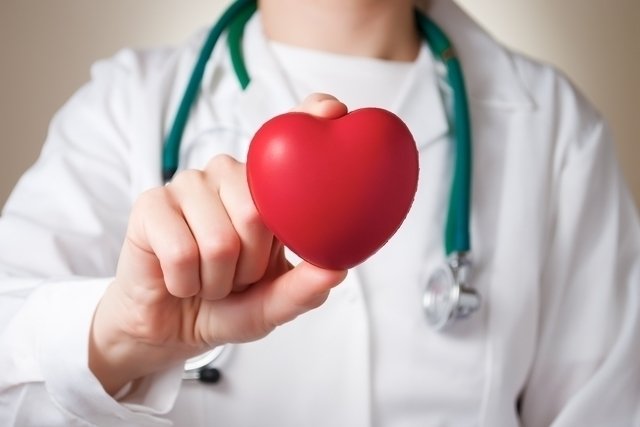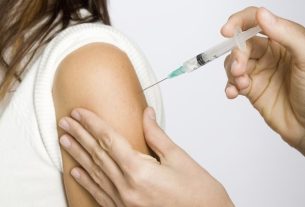A heart attack is generally caused by diseases such as atherosclerosis and uncontrolled high blood pressure, which can impair the flow of blood to the heart and/or increase its effort to pump blood to the body.
Furthermore, some medications, such as triptans and chemotherapy drugs, especially when not used according to medical advice, and illicit drugs such as cocaine can also affect the heart and cause a heart attack. However, regardless of the cause, adopting measures such as healthier eating and regular physical activity can help reduce your risk.
If you suspect diseases that can cause a heart attack, it is important to consult a doctor for an evaluation. However, in case of symptoms suggestive of a heart attack, such as chest pain or shortness of breath, it is recommended to seek emergency care. See how to identify the symptoms of a heart attack and its treatment.

Main causes
The main causes of heart attack are:
1. Atherosclerosis
Atherosclerosis is the main cause of heart attack and is caused especially by excessive consumption of foods rich in fat and cholesterol, which favors the formation of fatty plaques inside the arteries. If these plaques are located in the heart, they can impair blood flow, causing symptoms such as chest pain and shortness of breath, and even a heart attack. Discover the main causes of atherosclerosis.
What to do: In case of suspected atherosclerosis, it is important to consult a general practitioner or cardiologist for an evaluation, as treatment may involve medications such as statins, to control cholesterol, antihypertensives, in case of high blood pressure, or surgery, to restore blood flow.
Don’t ignore the signs your body is giving you!
2. High blood pressure
When blood pressure is very high, the heart has to work excessively to pump blood through the vessels. Furthermore, the vessels are more contracted, which increases the risk of damage to their walls and favors the formation of clots. When the heart works too much or these clots form in the heart arteries, they can cause a heart attack. See what the symptoms are and how to treat high blood pressure.
What to do: If high blood pressure is suspected, it is important to consult a general practitioner or cardiologist, because treatment usually also involves medications such as antihypertensives and diuretics. However, if your blood pressure is very high and causes symptoms such as headache, drowsiness or chest pain, it is recommended to go to an emergency room for an evaluation.
3. Diabetes
Diabetes, when uncontrolled, can damage the vessel walls, due to excess glucose, and accelerate the development of atherosclerosis, increasing the risk of heart attack. Furthermore, people with poorly controlled diabetes generally have unhealthy habits, such as an unbalanced diet and lack of physical exercise. See what diabetes is and how to identify the symptoms.
What to do: If diabetes is suspected, it is important to see a general practitioner or endocrinologist for an evaluation, as diabetes complications, such as heart attack and diabetic neuropathy, can be avoided with appropriate treatment.
4. Obesity
Obesity increases the risk of cardiovascular diseases, because it is a disease characterized by a sedentary lifestyle and excessive consumption of foods rich in sugar and fat, which favors the development of various diseases such as diabetes, high cholesterol and hypertension, increasing the risk of heart attack. Learn more about the complications of obesity and how to protect yourself.
What to do: Taking steps to lose weight are also an important part of treatment. However, in the case of obesity, it is possible to consult an endocrinologist for an evaluation and start the most appropriate treatment. Furthermore, monitoring by a nutritionist can also help.
5. Smoking
Frequent and constant cigarette use can lead to inflammation of the blood vessel walls and consequent stiffening, which makes the heart work harder, increasing the risk of heart attack, as well as other complications such as stroke, thrombosis and aneurysm.
Smoking also promotes greater absorption of cholesterol and thus stimulates the production of new fatty plaques, favoring atherosclerosis, which increases the risk of heart attack. See other diseases caused by cigarettes.
What to do: To avoid the risk of heart attack and other cardiovascular diseases such as stroke and thrombosis, it is recommended to stop smoking. Furthermore, if you have difficulty giving up the habit, you can seek help from a doctor or psychiatrist.
6. Drug and alcohol use
The use of illicit drugs, such as cocaine and marijuana, and excessive consumption of alcoholic beverages can increase the risk of heart attack by causing an increase in blood pressure. Furthermore, drugs such as cocaine can cause contraction of the arteries that carry blood to the heart, impairing the flow of blood, which can cause a heart attack in some cases. See what the effects of alcohol are on the body.
What to do: It is recommended not to use illicit drugs and avoid excessive alcohol consumption, because in addition to the risk of heart attack, other diseases such as cirrhosis and high blood pressure can develop. Furthermore, it is possible to seek help from a psychiatrist if you have difficulty stopping the use of these substances.
7. Arrhythmias
Arrhythmias, when they cause an excessive increase in heart rate, in addition to increasing the work of the heart, can impair the flow of blood to this organ, causing symptoms such as chest pain and shortness of breath, and even causing a heart attack.
What to do: In case of suspected arrhythmias, it is important to consult a general practitioner or cardiologist for an evaluation and initiation of appropriate treatment. However, if symptoms such as chest pain and shortness of breath occur, it is recommended to seek emergency care.
8. Use of medications
The use of some medications such as triptans, generally used to treat migraines, antibiotics and chemotherapy drugs, can have rare side effects on the contraction of the coronary arteries, reducing the flow of blood to the heart. Furthermore, other medications can also be toxic to the heart, damaging its cells and increasing the risk of heart attack.
What to do: Before using any medication, it is important to always consult a doctor and carry out treatment as directed to prevent serious side effects from occurring.
9. Embolism
Embolism is generally caused by clots that form inside the vessels or heart and can be caused by diseases such as heart disease, heart valve disease and some arrhythmias such as atrial fibrillation. The clots formed can block one of the arteries that supply blood to the heart, causing a heart attack. See the main causes of heart valve diseases and their symptoms.
What to do: In case of diseases that increase the risk of forming clots in the vessels or heart, such as atrial fibrillation or heart valve diseases, it is important to consult a general practitioner or cardiologist for an evaluation and initiation of appropriate treatment, which usually involves the use of anticoagulants.
How to reduce the risk of heart attack
To reduce the risk of heart attack, it is recommended:
- Have a healthy eating;
- Practice physical activities regularly;
- Quit smoking;
- Lose weight if you are overweight or obese;
- Avoid excessive alcohol consumption;
- Do not use illicit drugs, such as cocaine or marijuana;
- Use medications only with medical advice.
Furthermore, it is important to treat diseases such as high blood pressure, diabetes and high cholesterol as directed by your doctor.

Sign up for our newsletter and stay up to date with exclusive news
that can transform your routine!
Warning: Undefined array key "title" in /home/storelat/public_html/wp-content/plugins/link-whisper-premium/templates/frontend/related-posts.php on line 12
Warning: Undefined array key "title_tag" in /home/storelat/public_html/wp-content/plugins/link-whisper-premium/templates/frontend/related-posts.php on line 13



